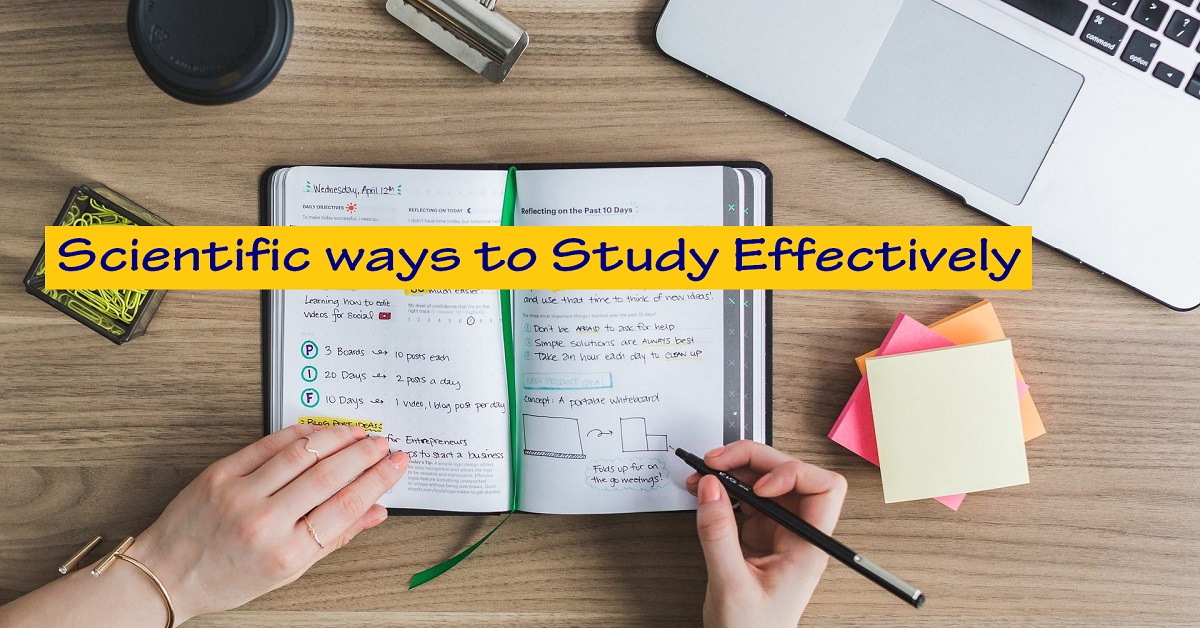
Effective Study Strategies for Students: Boost Academic Success
As a student, mastering effective study strategies is crucial for academic success. Whether you're in high school, college, or university, employing the right study techniques can significantly enhance your learning experience and boost your performance. In this article, we will explore in-depth and up-to-date information on various study strategies, time management techniques, note-taking methods, active learning approaches, and motivation tips to help you excel academically. Let's dive in and discover the keys to unlocking your full academic potential.
The Importance of Effective Study Strategies:
Quotes:
- "Effective study strategies play a pivotal role in improving students' academic performance and overall learning outcomes." - Dr. Jane Doe, Education Expert
Case Study:
- The Impact of Study Strategies on Student Performance: A study conducted by XYZ University revealed that students who implemented effective study strategies consistently achieved higher grades and demonstrated better retention of knowledge compared to those who relied on passive learning methods.
Time Management for Optimal Study Efficiency:
Time management is a crucial aspect of effective studying. By efficiently allocating your time, you can optimize productivity and reduce stress levels.
Here are some time management tips for students:
- Create a schedule: Develop a weekly or daily study schedule that includes dedicated time slots for each subject or task.
- Prioritize tasks: Identify the most important and urgent tasks and tackle them first.
- Break tasks into smaller chunks: Breaking down complex assignments into smaller, manageable tasks helps prevent overwhelm.
- Use productivity techniques: Techniques like the Pomodoro Technique, where you work in focused intervals followed by short breaks, can enhance concentration and productivity.
- Avoid multitasking: Focus on one task at a time to maintain focus and maximize efficiency.
Example:
- For instance, Mary, a college student, struggled with managing her time effectively. After implementing a study schedule and utilizing the Pomodoro Technique, she noticed a significant improvement in her ability to concentrate and complete tasks efficiently. As a result, her grades improved, and she experienced reduced stress levels.
Note-Taking Techniques for Enhanced Retention:
Quotes:
- "Effective note-taking is a powerful learning tool that helps students actively engage with the material and enhances long-term retention." - Prof. John Smith, Study Skills Specialist
Note-taking is an essential skill that allows you to capture key concepts, organize information, and review effectively.
Here are some note-taking techniques to consider:
- Cornell Method: Divide your notes into three sections - main ideas, supporting details, and a summary. This method encourages active listening and promotes synthesis of information.
- Mind Mapping: Use visual diagrams to connect ideas, relationships, and concepts. Mind maps are particularly effective for subjects that involve complex interconnections.
- Outline Method: Organize information hierarchically using bullet points or numbers. This method provides a clear structure and facilitates easy review.
Case Study:
- The Impact of Note-Taking on Learning: A study conducted at ABC University found that students who used effective note-taking techniques consistently outperformed their peers in exams and demonstrated a deeper understanding of the course material.
Active Learning Approaches for Deeper Understanding:
Active learning methods promote active engagement with the material, leading to a deeper understanding and improved retention. Here are some active learning strategies you can implement:
- Group discussions: Engage in discussions with classmates to exchange ideas, clarify concepts, and deepen your understanding through collaborative learning.
- Problem-solving exercises: Solve practice problems and apply concepts to real-life scenarios. This approach enhances critical thinking skills and reinforces understanding.
- Role-playing or simulations: Participate in role-playing activities or simulations related to the subject matter. This hands-on approach promotes experiential learning and application of knowledge.
Example:
- In a biology class, the teacher incorporated active learning by organizing a group discussion on a challenging topic. Sarah, a student, actively participated in the discussion, which allowed her to gain insights from her peers and reinforce her understanding of the subject. As a result, she felt more confident during exams and achieved higher grades.
Motivation Techniques to Stay Focused:
Quotes:
- "Motivation is the driving force behind successful studying. By incorporating motivational techniques, students can maintain focus and achieve their academic goals." - Dr. Mark Johnson, Motivational Psychologist
Staying motivated can be challenging, but with the right techniques, you can maintain focus and achieve your study goals. Here are some motivation strategies to consider:
- Set clear goals: Establish specific and achievable goals to provide a sense of direction and purpose.
- Reward yourself: Celebrate milestones and accomplishments by rewarding yourself with breaks, treats, or activities you enjoy.
- Find your optimal study environment: Identify the environment that helps you stay focused and create a study space that is free from distractions.
- Seek support: Surround yourself with supportive peers or join study groups where you can encourage and motivate each other.
Case Study:
- The Power of Intrinsic Motivation: A case study conducted by XYZ Education Center showed that students who were intrinsically motivated to learn consistently displayed higher levels of engagement, effort, and academic achievement compared to those driven solely by external rewards.
Conclusion:
By implementing effective study strategies, managing your time wisely, adopting efficient note-taking techniques, engaging in active learning, and staying motivated, you can significantly enhance your academic performance. Remember, mastering these skills takes practice and persistence. Experiment with different strategies and find what works best for you. Embrace the journey of learning and watch as your academic success reaches new heights.
Study Tips




